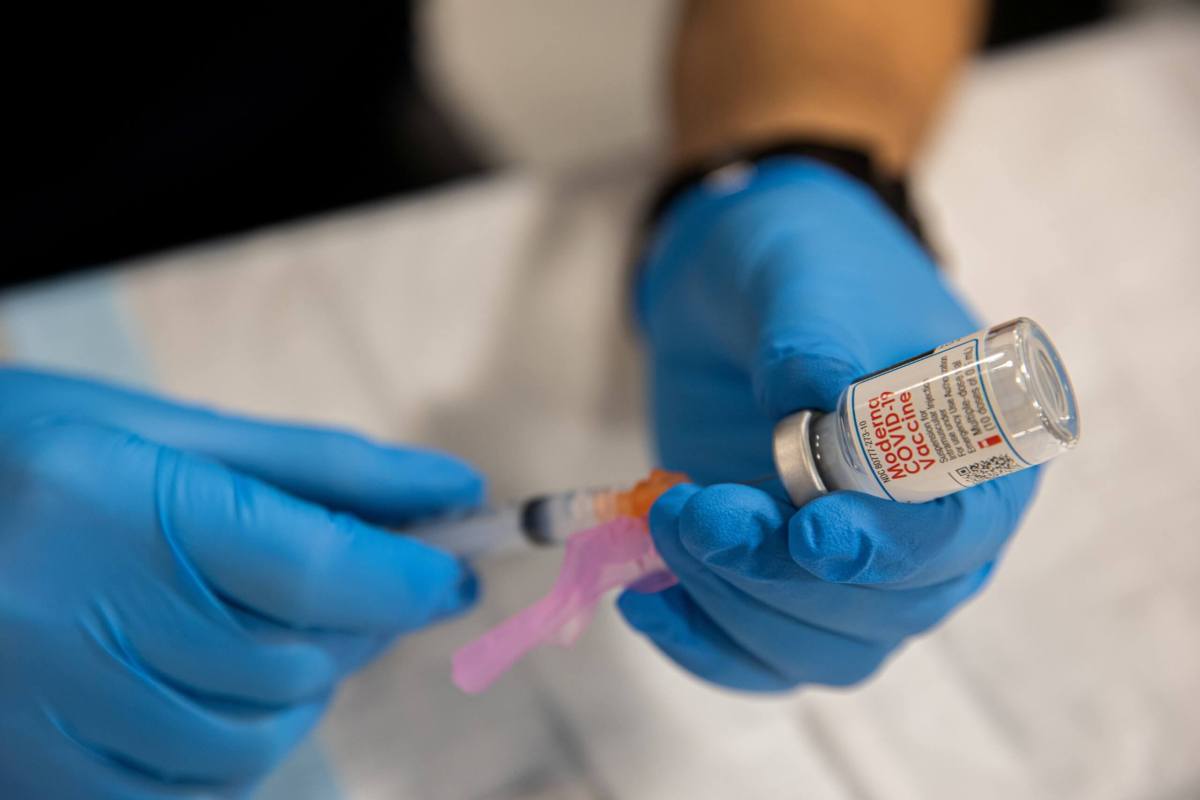Even though the powerful nor’easter that made its way up the east coast earlier this week forced New Yorkers to burrow in their homes, the storm may have also caused an increase in COVID-19 hospitalizations.
So surmised Mayor Bill de Blasio on Thursday, Feb. 4, when he suggested that a recent spike in hospitalizations related to the disease could be explained by the storm’s immobilizing effects.
New Yorkers who would have otherwise gone to the hospital on Monday or Tuesday – the days the storm dumped nearly two feet of snow upon the city – instead stayed home, opting to seek treatment on Wednesday instead, the mayor said.
City hospitals saw around 300 patients suspected of having COVID-19 on Wednesday, a spike from previous days, which saw around 250 patients.
The city’s overall positive COVID-19 test rate, based on a 7-day average, hovered around 8.5 percent, according to the mayor.
That number could see a spike, the mayor warned, if city-dwellers decide to let their guard down this weekend and gather to watch the Super Bowl.
“Please, just protect each other, protect your family. The last thing you want to do is get together for the big game and someone gets sick as a result,” de Blasio said. “Next year, you can have the biggest party you’ve ever had.”
The vaccination struggle continues
As de Blasio spoke with reporters Thursday, state Health Commissioner Howard Zucker publicly responded to the mayor’s request to free up vaccine doses designated as second doses. De Blasio had requested some shots be used as first doses earlier in the week.
“While the science on whether a ‘brief delay’ would impact full immunity is open and disputed, I do believe it would create undue anxiety to tell people who have scheduled appointments that those appointments are being shifted even for a ‘brief delay,’” Zucker wrote in his letter addressed to the mayor.
However, de Blasio said freeing up doses was a moral issue and added that even if the math doesn’t quite add up now, relief is on the way.
“The idea of turning away people who need help, who need to be protected – it makes no sense to me,” the mayor said. “We have specific evidence of supply growing up ahead…These are actual things we know, that means the situation in March is going to be better than the situation in February… How are we withholding doses from people now, when we know relief is up ahead.”
Unless the CDC gives the state the thumbs up to switch them, the doses designated for second shots will remain that way, Zucker said.
De Blasio’s commissioners recover
Two of the mayor’s commissioners – Police Commissioner Dermot Shea and Health Commissioner Dr. David Chokshi – spoke about their personal experiences of contracting COVID-19 Thursday.
Though Shea said he has nearly made a full recovery, Chokshi, who said he may have been infected by a member of his immediate family, is only a few days into his diagnosis.
“I’m doing OK today and I hope that remains the case,” Chokshi said, adding that his experience has reminded him of our susceptibility to the virus and how its effects are both physical and mental.
The city’s top doc had previously said he’d wait to get vaccinated until supplies increase, however, he recanted Thursday, saying he’d get the vaccine as soon as he recovers.
Shea, who recently began to exercise again, was battling a case of COVID-19 throughout most of January. The police commissioner said the whole month felt like a blur.
“It reminds you how fragile life is,” Shea said.



































